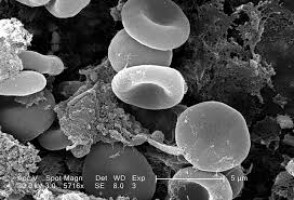
Few standard treatments have been available for advanced myelofibrosis, a bone marrow disorder characterised by excessive scar tissue that disrupts the normal production of blood cells
But new research conducted by investigators at Sylvester Comprehensive Cancer Center at the University of Miami Miller School of Medicine and collaborating cancer centers indicates that a new type of targeted therapy may offer new treatment options – and hope – for these patients.
Their study results will be shared at ASH 2023, the American Society of Hematology’s annual meeting in San Diego, Dec. 9-12.
“It’s exciting to be part of this multicenter study because we’re seeing some encouraging results for a new type of targeted therapy for advanced myelofibrosis and other blood malignancies,” said Justin M. Watts, M.D., Sylvester haematologist who will be the study’s lead presenter at ASH. “Until now, there have been few standard treatments for these cancers.”
Watts and his collaborators are testing a targeted and orally bioavailable epigenetic inhibitor of Bromodomain and extra-terminal (BET) proteins, which regulate the expression of critical oncoproteins involved in the disease process underlying blood cancers such as myelofibrosis.
Their phase 1, dose-escalation/expansion study is looking at the BET inhibitor known as “INCB057643” as a monotherapy for patients with relapsed or refractory myelofibrosis or other advanced blood cancers, and in combination with the JAK inhibitor ruxolitinib for patients with advanced myelofibrosis who had poor results with ruxolitinib as a frontline drug.
Thus far, Watts noted, the results are encouraging. “These investigational agents are proving to be safe, well-tolerated and effective in treating a cluster of symptoms typically seen with myelofibrosis, including fatigue, bone pain, night sweats, enlarged spleen and anaemia,” he said.
Surprisingly, he added, this BET inhibitor appears to treat anaemia in some patients, unlike other drugs, including in patients who have failed previous treatment with a JAK inhibitor alone or as a combination therapy.
“That’s really exciting because anaemia is often a major problem with these patients, and it usually gets worse, not better, with additional treatment,” he explained. “We’ve had patients who were needing biweekly transfusions become transfusion-independent while on this targeted therapy.”
An additional benefit, Watts said, is that it appears this therapy can be dosed at a level that does not produce the side effects seen with some other BET inhibitors, yet still produce the desired outcomes.
“It really has an unexpectantly good therapeutic window, especially when given in combination with the standard of care drug ruxolitinib,” he said. “We’re seeing good clinical results without the side effects.”
Next steps, he added, are to complete this phase I study in multiple, expanded cohorts for myelofibrosis and other malignancies, and to move to a randomized, phase 3 trial with this BET inhibitor added to ruxolitinib versus a placebo to determine if it improves survival rates among these patients.
“Epigenetic-targeted therapies really work for many of the patients we treat in our clinics, and in general have fewer side than chemotherapy,” Watts said. “And that’s both exciting and gratifying.”
Disclosures and funding information are available in the abstract.